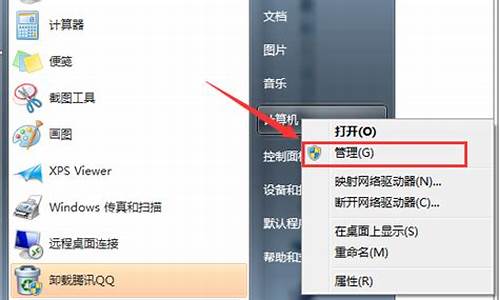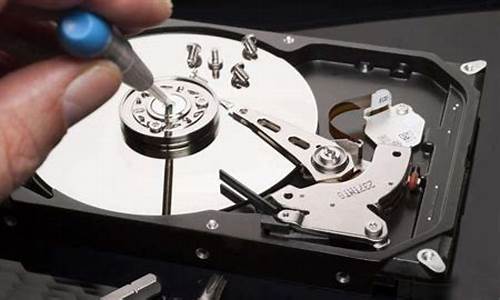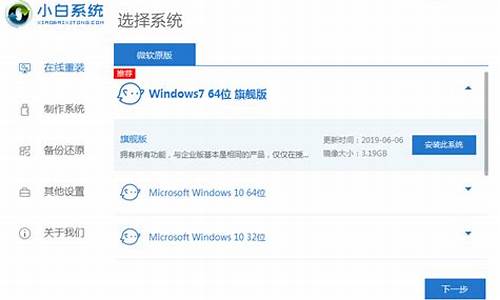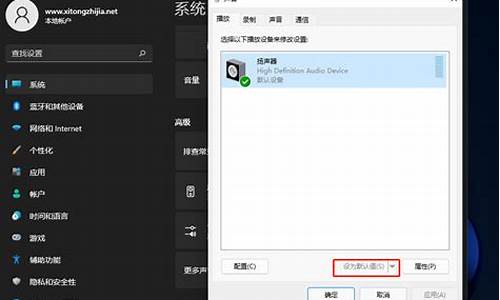mfc获取当前时间,mfc获取电脑系统时间
1.如何让c语言自动读取电脑上的日期及时间
2.MFC中怎么获取时间啊
3.vc ++中获取系统小时时间
4.mfc计算运算时间
5.VC怎样获取系统的时间
6.MFC如何修改系统时间?

SYSTEMTIME time;
GetSystemTime(&time);
CString str;
str.Format("%d%d%d%d%d%d",time.wYear,time.wMonth,time.wDay,time.wHour,time.wMinute,time.wSecond);
用这样子就可以了~~~如果还有什么不明白的话,可以继续追问~~
如何让c语言自动读取电脑上的日期及时间
void CMy033View::OnTimer(UINT nIDEvent)
{
// TODO: Add your message handler code here and/or call default
CClientDC dc(this);
sec++;
CString str;
str.Format("%d",sec);
dc.TextOut(700,380,str);
CTime theTime = CTime::GetCurrentTime(); // 获取系统时间
str.Format("%02d:%02d:%02d",theTime.GetHour(),theTime.GetMinute(),theTime.GetSecond()); // 格式化成字符串
dc.TextOut(700,480,str); // 这行用来显示
CView::OnTimer(nIDEvent);
}
MFC中怎么获取时间啊
C语言中读取系统时间的函数为time(),其函数原型为:
#include <time.h>
time_t time( time_t * ) ;
time_t就是long,函数返回从1970年1月1日(MFC是1899年12月31日)0时0分0秒,到现在的的秒数。可以调用ctime()函数进行时间转换输出:
char * ctime(const time_t *timer);
将日历时间转换成本地时间,按年月日格式,进行输出,如:
Wed Sep 23 08:43:03 2015
C语言还提供了将秒数转换成相应的时间结构的函数:
struct tm * gmtime(const time_t *timer); //将日历时间转化为世界标准时间(即格林尼治时间)
struct tm * localtime(const time_t * timer); //将日历时间转化为本地时间
将通过time()函数返回的值,转换成时间结构struct tm :
struct tm {
int tm_sec; /* 秒 – 取值区间为[0,59] */
int tm_min; /* 分 - 取值区间为[0,59] */
int tm_hour; /* 时 - 取值区间为[0,23] */
int tm_mday; /* 一个月中的日期 - 取值区间为[1,31] */
int tm_mon; /* 月份(从一月开始,0代表一月) - 取值区间为[0,11] */
int tm_year; /* 年份,其值等于实际年份减去1900 */
int tm_wday; /* 星期 – 取值区间为[0,6],其中0代表星期天,1代表星期一,以此类推 */
int tm_yday; /* 从每年的1月1日开始的天数 – 取值区间为[0,365],其中0代表1月1日,1代表1月2日,以此类推 */
int tm_isdst; /* 夏令时标识符,实行夏令时的时候,tm_isdst为正。不实行夏令时的进候,tm_isdst为0;不了解情况时,tm_isdst()为负。*/
};
编程者可以根据程序功能的情况,灵活的进行日期的读取与输出了。
例如:
#include<time.h>main()
{
time_t?timep;
struct?tm?*p;
time?(&timep);
p=gmtime(&timep);
printf("%d\n",p->tm_sec);?/*获取当前秒*/
printf("%d\n",p->tm_min);?/*获取当前分*/
printf("%d\n",8+p->tm_hour);/*获取当前时,这里获取西方的时间,刚好相差八个小时*/
printf("%d\n",p->tm_mday);/*获取当前月份日数,范围是1-31*/
printf("%d\n",1+p->tm_mon);/*获取当前月份,范围是0-11,所以要加1*/
printf("%d\n",1900+p->tm_year);/*获取当前年份,从1900开始,所以要加1900*/
printf("%d\n",p->tm_yday);?/*从今年1月1日算起至今的天数,范围为0-365*/
}
vc ++中获取系统小时时间
下面的代码片段是来自检查框的单击事件,时间显示在文本框里的:void CSELECTBOXDlg::OnTimeCheck()
{
UpdateData(TRUE);
if(m_Time_Check==TRUE)
{
CTime tNow;
tNow=CTime::GetCurrentTime();
CString sNow=tNow.Format("%I:%M:%S");
m_Time_Edit.SetSel(0,-1);
m_Time_Edit.ReplaceSel(sNow);
/* %I connote hour(01 to 12)
%m connote minute(00 to 59)
%d connote second(00 to 59)
*/
}
else
{
m_Time_Edit.SetSel(0,-1);
m_Time_Edit.ReplaceSel("");
}
UpdateData(FALSE);
}
mfc计算运算时间
1 使用time_t time( time_t * timer ) 精确到秒 计算时间差使用double difftime( time_t timer1, time_t timer0 )2 使用clock_t clock() 得到的是CPU时间 精确到1/CLOCKS_PER_SEC秒3 使用DWORD GetTickCount() 得到的是系统运行的时间 精确到毫秒4 如果使用MFC的CTime类,可以用CTime::GetCurrentTime() 精确到秒5 要获取高精度时间,可以使用 BOOL QueryPerformanceFrequency(LARGE_INTEGER *lpFrequency)获取系统的计数器的频率 BOOL QueryPerformanceCounter(LARGE_INTEGER *lpPerformanceCount)获取计数器的值 然后用两次计数器的差除以Frequency就得到时间。 GetTickCount()和GetCurrentTime()都只精确到55ms(1个tick就是55ms)。如果要精确到毫秒,应该使用timeGetTime函数或QueryPerformanceCounter函数。具体例子可以参考QA001022 "VC++中使用高精度定时器"、QA001813 "如何在Windows实现准确的定时"和QA004842 "timeGetTime函数延时不准"。Q:vc++怎样获取系统时间,返回值是什么类型的变量呢? GetSystemTime返回的是格林威志标准时间 GetLocalTime,和上面用法一样,返回的是你所在地区的时间,中国返回的是北京时间 VOID GetSystemTime( LPSYSTEMTIME lpSystemTime // address of system time structure ); 函数就可以获得了,其中LPSYSTEMTIME 是个结构体 含:年,月,日,周几,小时,分,秒,毫秒。以下是Time的MSDN文档:Compatibility in the Introduction.Libraries Return Valuetime returns the time in elapsed seconds. There is no error return.ParametertimerStorage location for timeRemarksThe time function returns the number of seconds elapsed since midnight (00:00:00), January 1, 1970, coordinated universal time, according to the system clock. The return value is stored in the location given by timer. This parameter may be NULL, in which case the return value is not stored. Example/* TIMES.C illustrates various time and date functions including: * time _ftime ctime asctime * localtime gmtime mktime _tzset * _strtime _strdate strftime * * Also the global variable: * _tzname */#include <time.h>#include <stdio.h>#include <sys/types.h>#include <sys/timeb.h>#include <string.h>void main(){ char tmpbuf[128], ampm[] = "AM"; time_t ltime; struct _timeb tstruct; struct tm *today, *gmt, xmas = { 0, 0, 12, 25, 11, 93 }; /* Set time zone from TZ environment variable. If TZ is not set, * the operating system is queried to obtain the default value * for the variable. */ _tzset(); /* Display operating system-style date and time. */ _strtime( tmpbuf ); printf( "OS time:\t\t\t\t%s\n", tmpbuf ); _strdate( tmpbuf ); printf( "OS date:\t\t\t\t%s\n", tmpbuf ); /* Get UNIX-style time and display as number and string. */ time( <ime ); printf( "Time in seconds since UTC 1/1/70:\t%ld\n", ltime ); printf( "UNIX time and date:\t\t\t%s", ctime( <ime ) ); /* Display UTC. */ gmt = gmtime( <ime ); printf( "Coordinated universal time:\t\t%s", asctime( gmt ) ); /* Convert to time structure and adjust for PM if necessary. */ today = localtime( <ime ); if( today->tm_hour > 12 ) { strcpy( ampm, "PM" ); today->tm_hour -= 12; } if( today->tm_hour == 0 ) /* Adjust if midnight hour. */ today->tm_hour = 12; /* Note how pointer addition is used to skip the first 11 * characters and printf is used to trim off terminating * characters. */ printf( "12-hour time:\t\t\t\t%.8s %s\n", asctime( today ) + 11, ampm ); /* Print additional time information. */ _ftime( &tstruct ); printf( "Plus milliseconds:\t\t\t%u\n", tstruct.millitm ); printf( "Zone difference in seconds from UTC:\t%u\n", tstruct.timezone ); printf( "Time zone name:\t\t\t\t%s\n", _tzname[0] ); printf( "Daylight savings:\t\t\t%s\n", tstruct.dstflag ? "YES" : "NO" ); /* Make time for noon on Christmas, 1993. */ if( mktime( &xmas ) != (time_t)-1 ) printf( "Christmas\t\t\t\t%s\n", asctime( &xmas ) ); /* Use time structure to build a customized time string. */ today = localtime( <ime ); /* Use strftime to build a customized time string. */ strftime( tmpbuf, 128, "Today is %A, day %d of %B in the year %Y.\n", today ); printf( tmpbuf );} OutputOS time: 21:51:03OS date: 05/03/94Time in seconds since UTC 1/1/70: 768027063UNIX time and date: Tue May 03 21:51:03 1994Coordinated universal time: Wed May 04 04:51:03 199412-hour time: 09:51:03 PMPlus milliseconds: 279Zone difference in seconds from UTC: 480Time zone name: Daylight savings: YESChristmas Sat Dec 25 12:00:00 1993Today is Tuesday, day 03 of May in the year 1994.
VC怎样获取系统的时间
计算前和计算后分别获取当前时间,然后用时间相减
inline __int TimeDiff(SYSTEMTIME left,SYSTEMTIME right)
{
CTime tmLeft(left.wYear,left.wMonth,left.wDay,0,0,0);
CTime tmRight(left.wYear,left.wMonth,left.wDay,0,0,0);
CTimeSpan sp;
sp = tmLeft - tmRight;//计算日期比较麻烦,就交给MFC去做吧
long lLMinllis = (left.wHour*3600 + left.wMinute*60 + left.wSecond)*1000 + left.wMilliseconds;
long lRMinllis = (right.wHour*3600 + right.wMinute*60 + right.wSecond)*1000 + right.wMilliseconds;
return (__int)sp.GetDays()*800000 + (lLMinllis - lRMinllis);
}
MFC如何修改系统时间?
VC获取系统时间可以用如下方法:
1 使用time_t time( time_t * timer ) 精确到秒。
计算时间差使用double difftime( time_t timer1, time_t timer0 )。
2 使用clock_t clock() 得到的是CPU时间 精确到1/CLOCKS_PER_SEC秒。
3 使用DWORD GetTickCount() 得到的是系统运行的时间 精确到毫秒。
4 如果使用MFC的CTime类,可以用CTime::GetCurrentTime() 精确到秒。
5 要获取高精度时间,可以使用BOOL QueryPerformanceFrequency(LARGE_INTEGER *lpFrequency)获取系统的计数器的频率。
BOOL QueryPerformanceCounter(LARGE_INTEGER *lpPerformanceCount)获取计数器的值。然后用两次计数器的差除以Frequency就得到时间。
SYSTEMTIME st;
GetSystemTime(&st);
st.wYear = 2009;
SetSystemTime(&st);
我自己试了,通过!
声明:本站所有文章资源内容,如无特殊说明或标注,均为采集网络资源。如若本站内容侵犯了原著者的合法权益,可联系本站删除。












